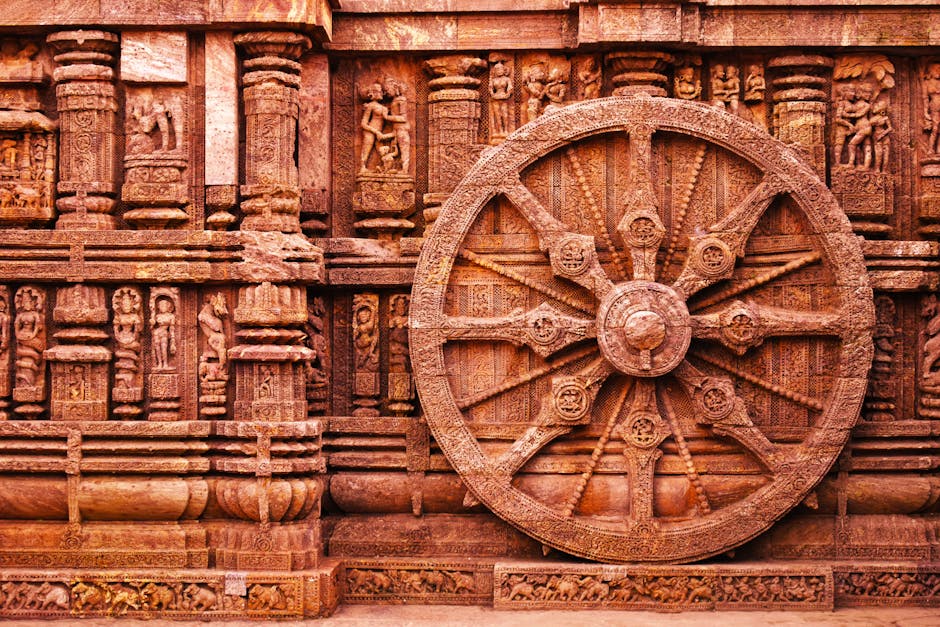Mythology, a tapestry woven from the shared anxieties, aspirations, and observations of diverse cultures, offers a window into the human condition across millennia. While separated by geography and time, these rich narratives often reveal surprising similarities, showcasing recurring themes and motifs that connect seemingly disparate traditions. Exploring these common threads provides a powerful lens through which to understand the fundamental human experience, revealing underlying patterns in our search for meaning and our place within the cosmos.
A Constant Search for Origin Stories
A prominent thread woven through countless mythologies is the persistent quest for origin stories. Humans across the globe have consistently sought to understand the beginning of everything the genesis of the universe, the emergence of life, the establishment of societal norms. These narratives, regardless of their specific details, typically feature a primordial chaos from which order arises. In Egyptian mythos, the creation of the cosmos unfolds from the watery abyss of Nun. Similar accounts appear in Greek mythology, where the universe springs from the primordial void, and in the Mesopotamian traditions, with the creation emerging from the primordial sea. These shared concerns demonstrate a fundamental human need to comprehend existence’s commencement and the process of becoming.
The Role of Gods and Goddesses: Reflections of Human Nature
Mythological deities, figures possessing exceptional abilities and powers, mirror human attributes and desires. Across various cultures, gods are often depicted as embodying human emotions love, jealousy, anger, and ambition. This reflection of the human experience makes these stories relatable, despite their fantastical elements. The Greek god Zeus, known for his affairs and wrath, resonates with human experience. Similarly, the Norse god Odin, associated with wisdom and magic, speaks to our fascination with knowledge and power. These divine beings, even in their divine forms, represent human flaws and aspirations, illustrating the multifaceted nature of humanity.
Cycles of Time and the Eternal Return
A significant pattern is the recurrence of cyclical time, a belief present in many ancient myths. This concept suggests a universe characterized by endless repetitions of creation, destruction, and rebirth. The cyclical view often finds expression through seasonal cycles, highlighting the constant interplay between life and death. Mayan cosmology, for example, presented a cosmos undergoing continual destruction and renewal, reminiscent of the Hindu concept of cyclical time, known as samsara. This recurring pattern reflects an understanding of the universe as an ongoing process, a constant flux of existence.
Heroic Journeys and Trials
Heroic journeys, often filled with trials and tribulations, appear frequently in diverse mythologies. These tales frequently involve a protagonist facing challenges, acquiring wisdom, and overcoming obstacles to achieve a specific goal. The epic journey of Gilgamesh, the Greek myth of Odysseus, and the Indian legend of Ramayana all exemplify this pervasive narrative structure. These heroic narratives resonate deeply because they explore universal human experiences: the search for meaning, the struggle against adversity, and the acquisition of knowledge. Each hero’s trials become a metaphor for the challenges faced by individuals and communities.
The Significance of Nature
Numerous myths depict a close relationship between humans and the natural world. The forces of nature, like rivers, mountains, and forests, are frequently personified and endowed with mythical significance. This representation mirrors the profound impact nature had on early societies, and the dependence humans had on natural resources. In Native American mythologies, for instance, powerful spirits often inhabit the natural landscape. Similarly, Greek myths frequently feature the anthropomorphic representation of nature, demonstrating the profound influence of natural phenomena on human belief systems.
Moral and Ethical Frameworks
Mythological stories frequently establish moral and ethical frameworks for society. They often portray the consequences of human actions, showcasing the importance of virtue, justice, and compassion. In many cultures, mythical figures serve as role models, demonstrating acceptable behaviour and the penalties for transgression. The Babylonian epic of Gilgamesh, for instance, explores themes of mortality and the search for meaning, ultimately highlighting the importance of acceptance and a peaceful existence.
Common Archetypes and Symbols
Recurring symbols and archetypes, such as the hero’s journey, the trickster figure, and the powerful feminine, appear frequently in myths worldwide. These patterns reflect shared human psychological and cultural experiences. The trickster, for example, often embodies a spirit of subversion and chaos, yet also serves a role in creating cultural order. The appearance of these archetypes in varied contexts points towards a profound universality in human thought and imagination.
Cultural Exchange and Appropriation
It is crucial to recognize that myths are not static entities. They are dynamic, often undergoing transformations through cultural exchange and adaptation. Elements of one culture’s myths might be absorbed and reinterpreted by another, resulting in hybrid narratives. Studying these exchanges provides insight into the movement of ideas and the complex interactions between societies.
Conclusion: A Shared Human Narrative
The remarkable commonalities in world mythologies, despite their geographical and temporal diversity, highlight the shared human experience. These stories offer a profound perspective on the fundamental questions that have engaged humanity since time immemorial: the origins of the universe, the nature of human beings, and our place in the cosmos. By unraveling these interwoven narratives, we gain a deeper appreciation for the universality of the human imagination and the enduring power of myth in shaping our understanding of ourselves and the world around us. The enduring resonance of these stories across cultures underscores the human need to find meaning, to interpret our world, and to connect with something larger than ourselves.












